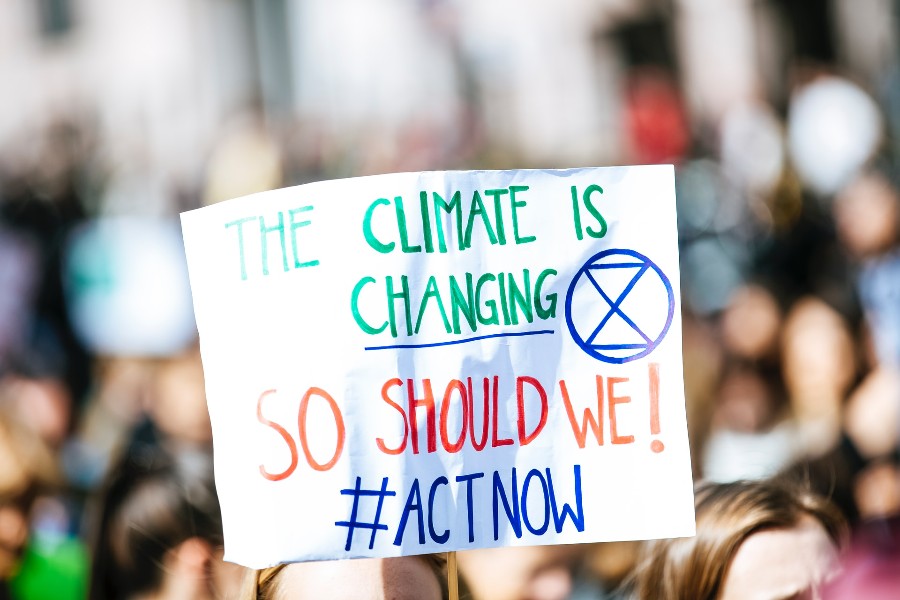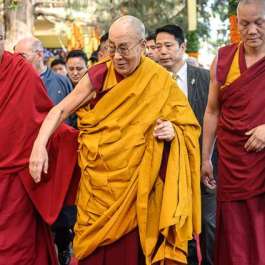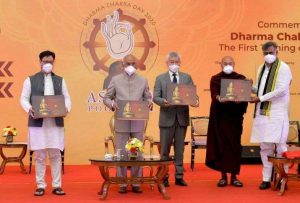
I was in a park in London last week, waiting to set off on a march as part of the Extinction Rebellion week of protests. As I waited, I had a conversation with a friend who I respect deeply for his activist work. I shared my appreciation of him, and he shook his head and told me that he doesn’t do enough, especially since he had started a new relationship. He was about to lead thousands of people through the streets of London, but in his mind it wasn’t enough.
I hear this over and over from activists. I also hear it from people who aren’t currently engaged in formal activism. How can we work out whether or not we are doing enough in these times of desperate need?
I have been having a conversation with myself on this topic for three years now. Before “waking up” to the urgency of the climate emergency, I would feel bad about neglecting certain areas of my life—for example the house wasn’t clean enough, or I didn’t speak to my grandmother often enough—but this guilt was relatively easy to manage. Yes, my house was grubby, but nobody was actually going to die if I didn’t dust behind the sofa.
Now that I’m more familiar with climate science, I know that many people are already dying as a result of climate-related famine and extreme weather events. I know that this suffering will become much, much worse if we don’t start making immediate and drastic changes to the way we live. I know how little our governments are actually doing, despite their promises, and how much pressure we might need to apply to get them to change their policies. How can I go about my ordinary life with time running out?
Of course, as human beings we are always making choices that lead to—or collude with—suffering. Currently, 3.1 million children die each year as a result of poor nutrition and hunger. I feel horrified as I type this figure and try to comprehend it. And despite my horror, I won’t be making any changes to my life as a result. I have some savings—I’m not going to hand this money over to those working to end world hunger. I have some spare time—I’m not planning on offering it as a volunteer for these charities. I feel a little shame as I share this, and within a few minutes these 3.1 million children will be “forgotten” as I move on with my life.
How can we live an ethical life, in the face of this impossible need? Is there such a thing as “doing enough?” What does it look like? When I find myself faced with difficult questions, I often ask myself a further question—what would the Buddha say?
The first of the Four Noble Truths tells us that we can’t avoid suffering. I immediately feel some relief as I remember this. I can’t work long or hard enough to single-handedly solve the climate crisis, or even to assuage my own guilt. Instead, I must find a way of living a noble life in the midst of all this suffering, with all my limitations. I can deeply acknowledge the truth of this suffering, and the responses that arise in me as a result. I can sometimes harness this energy and take action that is motivated by love, not fear. I can check myself against the ideals of the Eightfold Path and make small changes where I can. As a Pure Land Buddhist, I can also relax into the all-embracing love of the Buddha and remember that I am acceptable just as I am.
A friend of mine recently started a group on social media for local people interested in hosting Ukranian refugees. It has quickly ballooned into an almost full-time job. He is helping people with the difficult forms, organizing meetings, and helping people to share their knowledge and skills. As he talked to me about it, he glowed. He said he had “found his purpose.” This is his work. He won’t do it perfectly and there will be much that is left undone, but he feels glad to be useful and glad to be taking action motivated by love.
Over the past few years, I have spent some of my time speaking up about the climate crisis. Like my friend, I have a sense that I am doing what I am being called to do. The suffering of knowing that I’m “not doing enough” is a part of the deal. It is true that I could do more. I don’t, and mostly that feels okay. When I do push myself beyond my limits in order to offer more, it doesn’t seem to go well. I become resentful, or ill, or my other work suffers. I tend to believe that most of us are working at our limits most of the time, even if it doesn’t feel that way.
Are we doing enough? Maybe this isn’t a helpful question to begin with—although we can acknowledge the understandable guilt that may lie behind it. Other questions that might help include: how full is my plate right now? How do I feel about the things I am prioritizing? Might I want to swap one of my activities for something different? What is driving my guilt? What am I being called to do? What is holding me back from doing more of the things I feel called to do? What does the Buddha want me to do?
You will have questions of your own. Let’s keep asking them with gentleness and with curiosity. Let’s keep forgiving ourselves and others. Let’s remember that we are acceptable just as we are.
See more
Outside the Supreme Court, a life of purpose and pain ends in flames (The Washington Post)
Related features from BDG
Living in the Saha World
A Metta Prayer
For the Earth: Buddhist Environmental Thought and Activism
The Price of Freedom
Healing the World: The First Problem
No Poverty: The Sustainable Development Goals and Buddhism
Related news reports from BDG
Buddhists Discuss Self-Immolation and Protest after Climate Activist’s Death
Hope and Sacrifice on Earth Day











